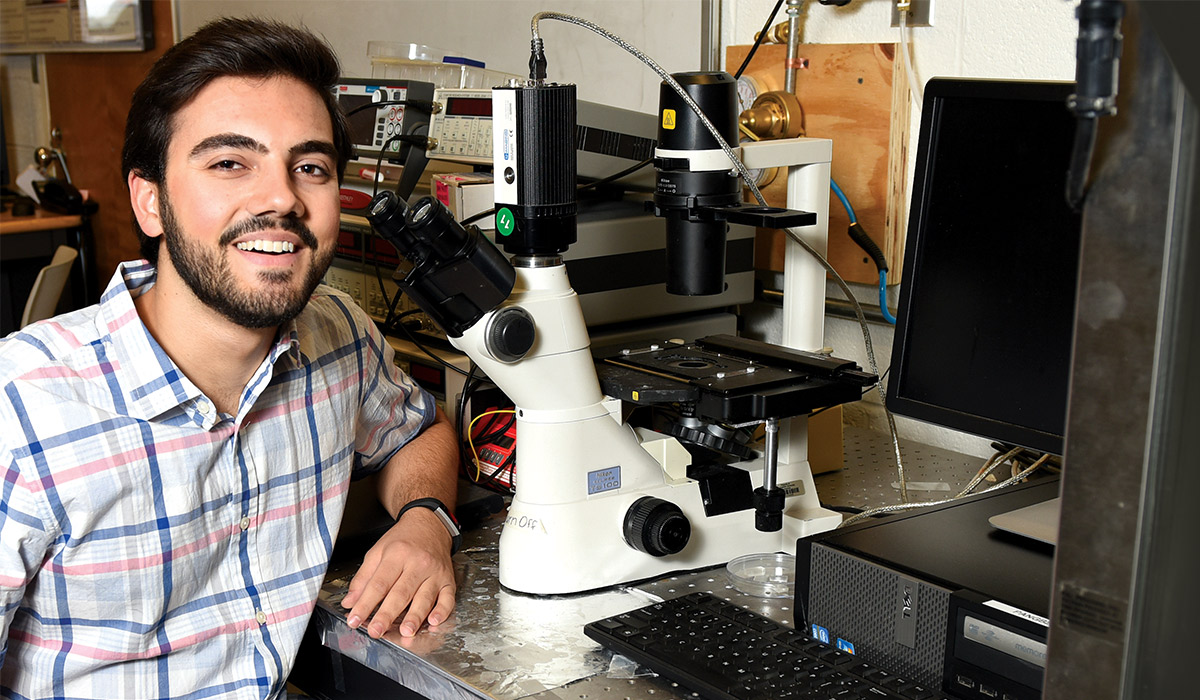

When Saba Owens, a senior, first enrolled in the School of Engineering, he hoped to explore as many aspects of engineering as possible. One thing he definitely didn’t expect was that, beginning in his junior year, he would be doing high-level research in a laboratory, working alongside graduate students in close contact with their professor.
“This is work on synthetic membranes, like drug delivery carriers,” Owens explains. “When you take a pill, it might be covered in a membrane formed by polymers. It dissolves. We want to know how that affects you internally. I can’t do tests on you, but I can develop these little devices that simulate what it’s like inside your body. So, I’m adding a certain chemical to these membranes to see how it affects their properties.”
“Once a week all the teams come together, and I have to present my findings for that week, so it really trained me to be able to speak about my work.”
Laboratory research, he discovered, is a little like a team sport in that his success often depends on the other players.
“Basically, it’s teamwork,” he says. “I can reach out to the person next to me and say, ‘Help! Do you understand what’s happening?’ When I first got to the lab, I honestly had no idea what to do. I didn’t know it was going to be that detailed!”
In the future, Owens muses, he hopes to work on developing prosthetics for children. But whatever the future holds, he feels well prepared for any opportunity that might arise. Presenting his findings regularly in the lab has boosted his confidence and helped him master a key workplace skill.
“Once a week all the teams come together,” he says, “and I have to present my findings for that week, so it really trained me to be able to speak about my work. That’s really a key factor of research — to convey your findings to other people. If you can’t do that, how is your work going to be implemented later on in the workforce?”